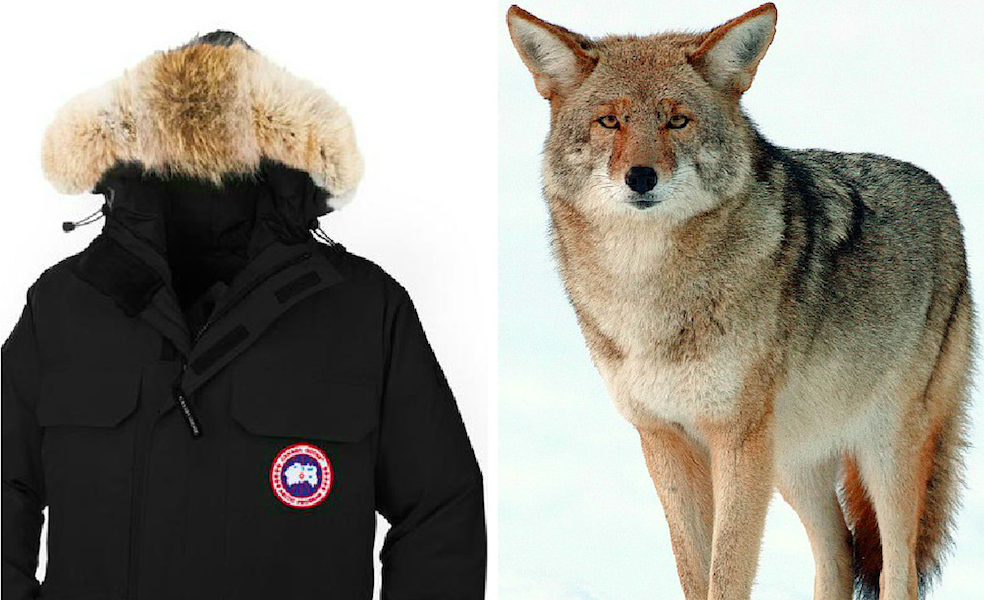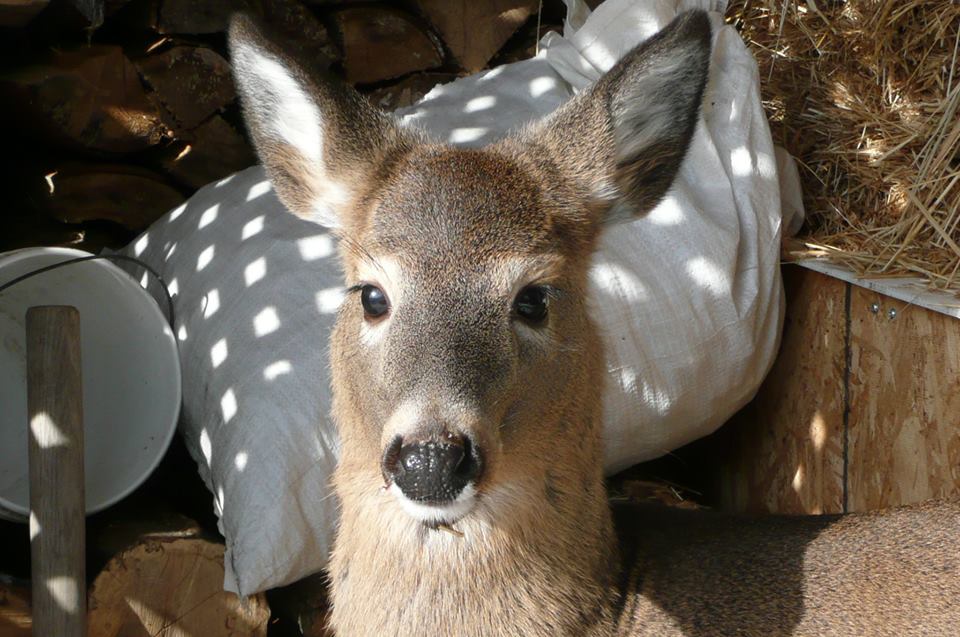An animal welfare group is taking on Canada Goose, maker of the seemingly everywhere fur-trimmed parkas.
Animal Justice Canada Legislative Fund is accusing the Canadian manufacturer of “false and misleading advertising” by claiming the coyote fur trim on the coat’s hood comes from “humanely” trapped animals. The complaint, which was filed this month with the federal Competition Bureau, alleges the company’s website and marketing materials are misleading consumers and make false claims about animal welfare.
“It is well-documented that the fur trade engages in practices that most consumers do not consider humane, including using traps that cause significant injury and suffering to animals, and leaving some traps unchecked for days at a time,” Camille Labchuk, director of legal advocacy with Animal Justice, said in a statement. “By claiming the fur trim on its jackets come from humanely trapped coyotes, Canada Goose is preying on ethically-conscious consumers.”
It alleges leg hold traps causes animals to suffered serious injuries, while not killing them. And, kill traps don’t always work instantly, leaving some animals to suffer. Traps also catch species other than the animal being sought.
Animal Justice also tackle’s the trendy coat-maker’s claim that that the fur trim does a better job of protecting facial skin from frostbite than synthetic fur.
“In reality, no such evidence exists, and synthetic fur and other materials are regarded as highly warm and functional,” Animal Justice alleges.
The allegations were quickly picked up around the world since everyone from fashionistas to celebrities and star athletes to mountaineers as well as those just looking to stay warm has gobbled up the ubiquitous garments.
“In the last decade,” Canada Goose notes, “the company has grown over 4,000 per cent with current revenues surpassing $200-million, and sells product in over 50 countries.”
Canada Goose, which has been in business for more than five decades, promptly shot back against the allegations, posting this online statement on its use of fur.
“We’re confident in both why we use fur and how it is sourced, and people should know this is not something we take lightly. Our company is built on honesty and authenticity so we have gone to great lengths to be as open as possible about why we use fur on our products, how it is sourced, and the government-regulated practices of the Canadian fur industry. Like many proud Canadians, we don’t believe that the humane killing of animals for functional purpose is wrong. We understand and deeply respect that not everyone agrees with that. We also understand that despite the fact that numerous brands also use real fur in their products and do not attempt to explain their position, it is our very openness and transparency around this subject that makes Canada Goose a target for activist groups whose views will never align with ours. We are proud to support an industry practice that supports northern and rural communities in Canada, and of our continued role as an educator on this matter.”
The Competition Bureau enforces truth in advertising by discouraging deceptive business practices and by giving consumers enough information that they can make informed choices. The federal Competition Act has both civil and criminal sanctions for failing to do so.
Animal Justice wants “prompt action from the Competition Bureau to ensure consumers are not deceived by Canada Goose’s statements about its use of coyote fur on winter jackets.”
It has also started a petition.
Photo Animal Justice Canada Legislative Fund




